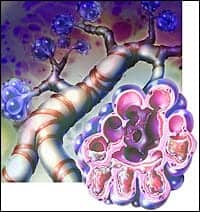Creating a dedicated critical care response or “outreach” team of intensive care specialists who respond quickly to calls for help throughout the hospital can help decrease heart attacks and deaths and the need for ventilators.
Data gathered from May 2005 to May 2006 on the impact of the critical care response team on 345 patients in Toronto General Hospital (TGH) University Health Network (UNH) showed that there was a 7% reduction in heart attacks and a 25% reduction in respiratory arrests. This translates to approximately 80 lives saved. The same data showed that after the response teams intervened, 71% of patients were able to remain on the ward and 21% transferred to the ICU.
Without the intervention of this portable intensive care unit, the chances of a patient surviving a heart attack in the hospital are about 12%, says Stuart Reynolds, MD, FCCP, an ICU physician at UNH. This is not television where the survival rates are inflated two to six times in this situation, he says.
The TGH team is composed of an ICU physician, nurse, and respiratory therapist; and the teams are available 24/7. Every patient who is discharged from the ICU into the ward is automatically followed for 48 hours, and the staff is educated about symptoms that might indicate a worsening condition.
So successful are these programs, that Canada’s Ministry of Health and Long Term Care has funded 31 hospitals in Ontario with the bulk of critical care units to create the critical care team. All sites will collect data to establish benchmarks for teams across the province.









